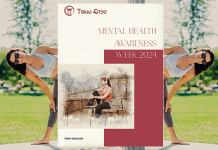In the tapestry of our daily exchanges, there’s a thread so commonly woven its nearly invisible, yet its impact can be deeply felt: the phrase “How are you?” This seemingly simple inquiry has become the cornerstone of greetings in many cultures, a bridge to more substantive conversations. But as this question echoes in the corridors of our lives, one can’t help but ponder: Has it merely become a conversational placeholder, or does it still hold a genuine concern for the well-being of others?
Initially, “How are you?” serves as an effortless way to start dialogue, a societal norm that greases the wheels of our social interactions. Yet, this ritualistic exchange often elicits a conditioned response: “I’m fine, thanks,” regardless of one’s true state of mind or heart. This automatic play of question and answer may leave little room for honesty, especially for those who are far from “okay” but feel pressured to mask their struggles behind a veneer of acceptability.
In an era marked by unprecedented levels of stress and anxiety, the texture of our daily interactions has never been more critical. Amidst the hustle of modern life, a simple conversation has the power to either alienate or connect, to exacerbate stress or to ease it. Central to this dynamic is the role of empathy—our ability to understand and share the feelings of another. As we navigate through our day, the repeated inquiry, “How are you?” can transform from a superficial greeting into a bridge towards genuine connection, if underpinned by true empathetic engagement.
Understanding the Stakes
Today, individuals across the globe grapple with heightened levels of stress and anxiety, arising from myriad sources such as health concerns, economic uncertainty, and the relentless pace of technological change. In such a context, every interaction carries the potential to affect someone’s mental and emotional well-being. This is where empathy becomes not just beneficial but essential. Empathy allows us to perceive and resonate with the emotions of others, offering silent support that can be profoundly comforting.
The Power of “How Are You?”
“How are you?” seems like a mere formality—a conversational placeholder with little real significance. However, when asked with genuine empathy, this question can open doors to deeper understanding and connection. It signals to the other person who you are truly interested in their well-being, that you are there to listen and support, rather than just hear and respond.
Encouraging honest responses requires creating a space where people feel safe to share their true feelings. This means being prepared to engage with whatever answer comes our way—be it joy, stress, sadness, or anything in between. It’s about making the shift from passive listening to active engagement, showing empathy and concern beyond the confines of conventional conversation.
The interplay of empathy in such exchanges does more than just enrich conversations; it validates the other person’s experiences and feelings. It shifts the dialogue from being transactional to relational, creating a space where authenticity can flourish. When people feel seen and heard, they are more likely to open up and share their true selves, leading to more engaging and meaningful conversations.
Empathy in Action
But how do we ensure our conversational empathy is not just performative but authentic? The answer lies in active listening and responsiveness. Active listening involves giving someone your full attention, acknowledging their feelings, and responding in a way that shows understanding and concern. It’s about being present, both physically and emotionally, and engaging with the conversation in a way that encourages openness and trust.
Empathetic conversation requires flexibility. It means being prepared to deviate from your own agenda or expectations of the conversation to address what the other person needs at that moment. This might involve offering support, providing space for silence, or simply being there with them in their experience.
The Ripple Effect of Empathetic Conversations
When empathy permeates our conversations, the effects can ripple outwards, creating a more compassionate and understanding community. Empathetic exchanges foster a sense of belonging and connection, reducing feelings of isolation and alienation. They remind us that, despite our individual challenges, we are not alone in our experiences.
By practicing empathy in our daily interactions, we contribute to a culture where emotional openness and vulnerability are respected. This cultural shift can lead to better mental health outcomes, as people feel more comfortable seeking help and sharing their struggles.
Integrating empathy into our conversations—starting with the simple yet profound question, “How are you?”—holds the potential to transform our interactions and, by extension, our collective well-being. As we strive to navigate the complexities of the modern world, let us not underestimate the power of empathy to bring us closer together, fostering a society where everyone feels understood, supported, and connected. In doing so, we not only enhance our own lives but also contribute to a kinder, more compassionate world.
However, dismissing this question as merely superficial overlooks its potential depth and significance. When asked with true intent and received by an open heart, “How are you?” can transform into a gateway to vulnerability, connection, and healing. It’s an invitation to share not just the pleasantries of our lives but also the challenges and raw truths that shape our human experience.
The crux of the matter lies not in the question itself but in how we ask and how we listen. Are we prepared to engage with the full spectrum of answers, beyond the confines of “fine” or “okay”? Dare we express our genuine selves when asked, trusting in the listener’s compassion? The beauty of “How are you?” lives in its potential to develop from a mere conversation starter into a profound exchange of empathy and understanding.
So, as we navigate the complexities of human interaction on Torri Enso and beyond, let us ponder the weight of our words and the depth of our engagements. May we strive to infuse our inquiries with genuine curiosity and respond with honesty, creating space for the authentic expressions of well-being. In doing so, we reclaim the power of “How are you?” as a catalyst for meaningful connections, reminding us of the shared humanity that binds us all.
Next Steps
Enrol in Torri Enso’s groundbreaking course, “Authentic Manifestation: The Path to Self-Honesty,” offering invaluable insights into enhancing relationships, communication, and fostering empathy.
Why Enrol in “Authentic Manifestation: The Path to Self-Honesty”?
Embarking on this transformative journey with Torri Enso not only helps you align with your authentic self but also enriches your interpersonal dynamics. Here’s how the course can revolutionise the way you engage in conversations and relationships:
- Embracing Self-Worthiness and Personal Responsibility: By recognising your inherent worth and taking responsibility for your actions and emotions, you’ll approach conversations with confidence and openness. This foundation enables you to express genuine interest and concern when asking, “How are you?”—transforming it from a mere formality into an opportunity for meaningful connection.
- Confronting Emotions and Cultivating Courage: Learning to navigate your emotional landscape equips you with the empathy needed to understand and connect with others on a deeper level. The courage developed through the course empowers you to face uncomfortable truths and engage in authentic conversations, even when they’re challenging.
- Embracing Imperfections and Humility: Acknowledging and appreciating your own imperfections helps you approach others with empathy and understanding. Humility fosters a non-judgmental space for others to share their true selves, making “How are you?” a gateway to heartfelt conversations.
- Consistent Practice for Sustained Success: The course emphasises the importance of integrating these practices into your daily life. This commitment ensures that your interactions remain consistently authentic, empathetic, and engaging, changing the way you connect with those around you.
Transform Your Conversations and Connections
“Authentic Manifestation: The Path to Self-Honesty” offers more than personal growth and self-discovery; it provides the tools to transform your interactions into sources of joy, understanding, and genuine connection. Whether it’s redefining how you ask “How are you?” or deepening your relationships, this course guides you every step of the way.
By enrolling, you’ll join a community of like-minded individuals, all striving towards a life of authenticity and fulfilment. You’ll learn not only to navigate your own emotional and psychological landscapes with grace but also to foster meaningful connections with empathy and sincerity.
Embark on a Journey of Authentic Connection
If you’re ready to enhance your communication, deepen your relationships, and live authentically, “Authentic Manifestation: The Path to Self-Honesty” awaits. Enrol today and take the first step towards transforming your everyday interactions into meaningful connections. Your journey towards empathetic conversation and genuine happiness begins now with Torri Enso.

|
Authentic Manifestation: The Path to Self-HonestyA transformative journey that beckons you to the heart of your truest self, offered only through Torri Enso. “Authentic Manifestation: The Path to Self-Honesty” is a meticulously crafted course designed to guide you through the profound process of manifesting your deepest desires and dreams, not through sheer force of will, but through the power of aligning with your authentic self. This course is structured around eight pivotal modules: Embracing Self-Worthiness, Assuming Personal Responsibility, Confronting Emotions, Self-Appreciation, Cultivating Courage, Embracing Imperfections, Embracing Humility, and Consistent Practice. Each module builds upon the last, creating a comprehensive path that leads you toward a more genuine, fulfilling life. |






